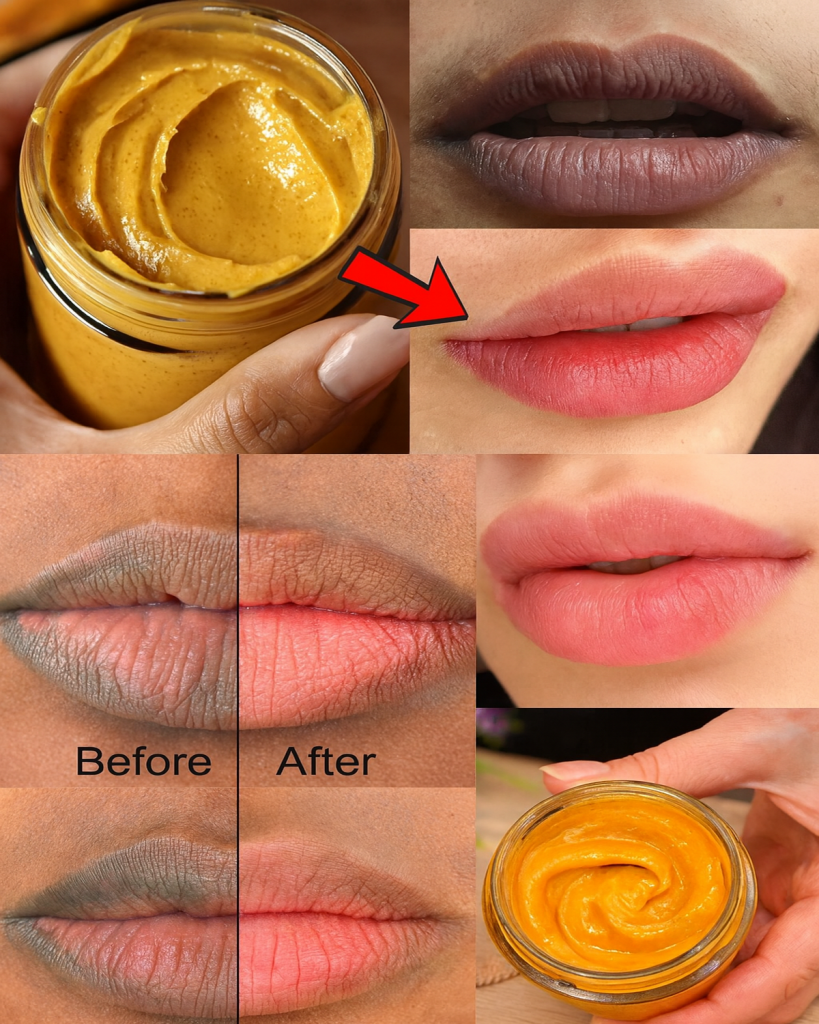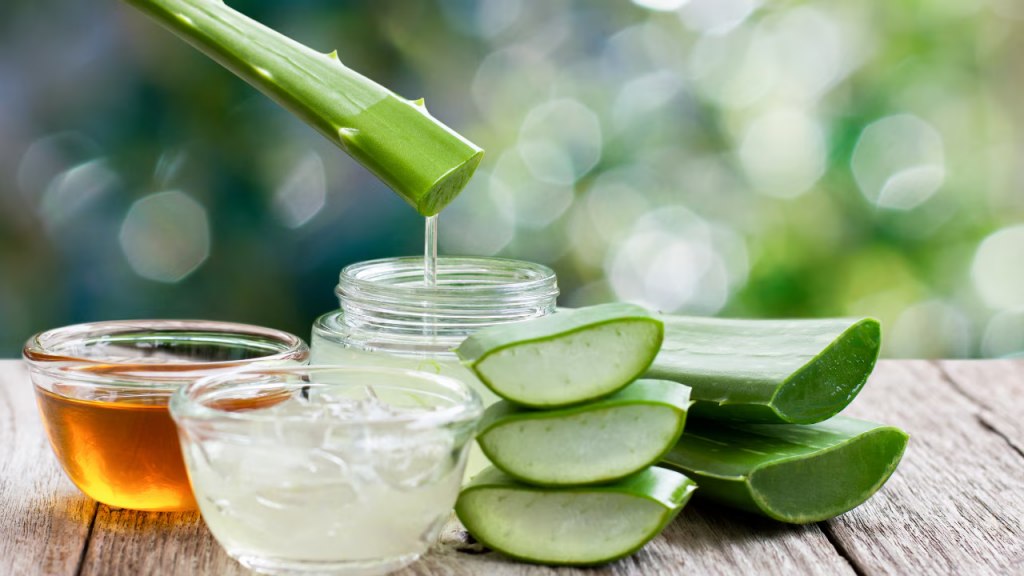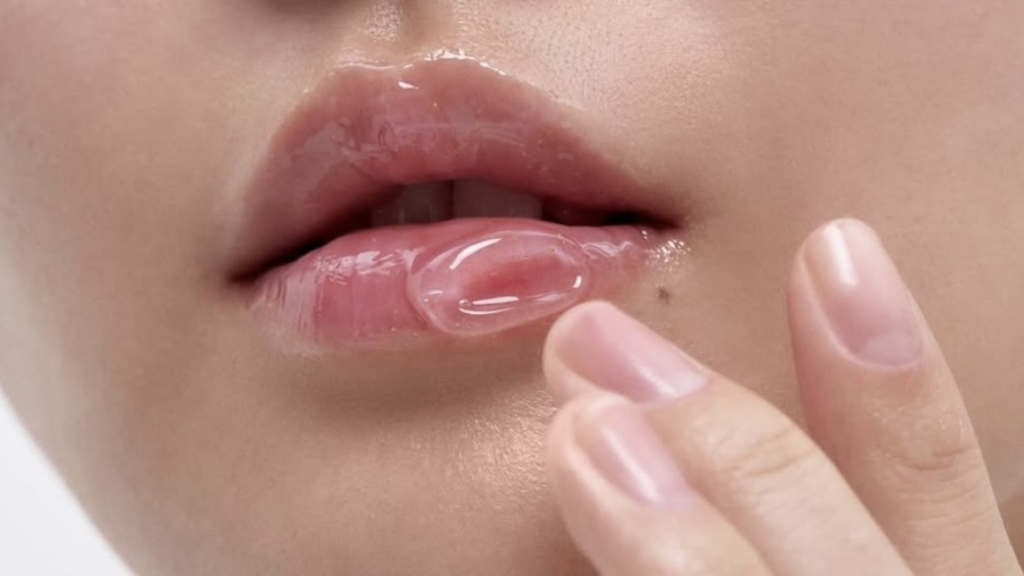Did you know that nearly one in every three adults experiences lip discoloration at some point in life? While dark lips are not usually a medical concern, they can affect self-confidence and how you feel about your smile. From lifestyle habits to environmental factors, many reasons can cause lips to lose their natural rosy tone.
The beauty industry offers countless lip balms, scrubs, and treatments, but many of these are expensive or full of synthetic ingredients. The good news is that several simple, natural remedies have been trusted for generations to help restore lip color, softness, and vitality. Whether you’re dealing with dark lips from smoking, dehydration, sun exposure, or just genetics, you’ll discover in this guide practical, affordable, and effective ways to care for them at home.
Keep reading to learn about the best remedies to get rid of dark lips, backed by everyday experience, scientific insights, and tips that you can easily integrate into your daily routine.

What Causes Dark Lips?
Before exploring remedies, it’s important to understand the common causes:
- Excessive sun exposure: UV rays trigger melanin production, leading to pigmentation.
- Smoking: Nicotine and heat from cigarettes darken lip tissue.
- Dehydration: Lack of moisture makes lips dry and dull.
- Caffeine and alcohol: Overconsumption may cause discoloration.
- Hormonal changes: Certain imbalances can affect skin tone, including lips.
- Allergic reactions: Harsh cosmetics or low-quality lipsticks can irritate lips.
Knowing the root cause will help you choose the best remedy and prevent future darkening.
Top Natural Remedies for Dark Lips
1. Lemon Juice for Gentle Lightening
Lemon is widely known for its natural bleaching properties.
- How to use: Rub a slice of fresh lemon over your lips before bedtime. Rinse in the morning.
- Why it works: Vitamin C and citric acid in lemon help reduce pigmentation.
- Tip: Mix lemon juice with honey for a moisturizing treatment.

2. Rose Petals and Milk for Nourishment
Rose petals have been used in beauty rituals for centuries.
- How to use: Crush fresh rose petals and soak them in milk for 30 minutes. Apply the paste to your lips for 15 minutes, then rinse.
- Why it works: Natural oils in roses soften lips, while milk lightens discoloration.
3. Beetroot for a Natural Tint
Beetroot provides an instant pinkish glow.
- How to use: Apply beetroot juice or a slice directly onto your lips for 10 minutes.
- Why it works: Its natural pigments enhance color while antioxidants improve skin health.
4. Honey and Sugar Scrub for Exfoliation
Exfoliating removes dead skin that makes lips appear darker.
- How to use: Mix one teaspoon of honey with sugar to form a scrub. Gently massage your lips for 2–3 minutes, then rinse.
- Why it works: Sugar exfoliates, and honey hydrates.
5. Aloe Vera Gel for Healing
Aloe vera is a soothing remedy for irritated or damaged lips.
- How to use: Apply fresh aloe vera gel and leave it on for 15–20 minutes. Rinse with lukewarm water.
- Why it works: Contains aloin, a compound that helps reduce pigmentation.

6. Coconut Oil for Daily Care
Coconut oil is both a moisturizer and a protective barrier.
- How to use: Apply a few drops of coconut oil several times a day.
- Why it works: Keeps lips hydrated, preventing dryness-related darkening.
7. Turmeric and Milk for Pigmentation Control
Turmeric is a natural brightening agent.
- How to use: Mix half a teaspoon of turmeric powder with milk to form a paste. Apply to lips for 5 minutes, then rinse.
- Why it works: Turmeric reduces melanin production, while milk nourishes.
Daily Habits to Prevent Dark Lips
Beyond remedies, lifestyle changes play a big role in maintaining healthy lips.
- Stay hydrated: Drink at least 8 glasses of water daily.
- Use SPF lip balm: Protects from UV damage.
- Quit smoking: One of the most effective ways to restore natural lip color.
- Limit caffeine and alcohol: Reduces dryness and discoloration.
- Choose safe cosmetics: Opt for quality lipsticks and balms without harsh chemicals.

A Simple 7-Day Lip Care Routine
| Day | Morning | Evening |
|---|---|---|
| 1 | Lemon + honey rub | Coconut oil overnight |
| 2 | Beetroot juice tint | Rose petal milk mask |
| 3 | Honey-sugar scrub | Aloe vera gel |
| 4 | Coconut oil balm | Turmeric paste |
| 5 | Hydrating lip balm | Beetroot juice |
| 6 | Lemon water hydration | Aloe vera gel |
| 7 | Rose petal paste | Coconut oil overnight |
Repeat the cycle weekly for best results.

Real-Life Experiences
- Maya, 27: “I struggled with dark lips after years of smoking. Switching to natural scrubs and coconut oil really helped me regain color.”
- Jason, 34: “My lips always looked dull from too much coffee. Lemon and honey became my go-to remedy.”
- Leila, 22: “Rose petals are a game-changer. Not only do my lips feel soft, but they also look naturally pink.”
Safety Considerations
- Always do a patch test before applying new ingredients.
- Avoid harsh scrubbing to prevent damage.
- Use remedies consistently but moderately—too much lemon or turmeric can irritate.
- If discoloration worsens, consult a dermatologist to rule out underlying conditions.
Conclusion
Dark lips may feel frustrating, but they’re often reversible with consistent care and natural remedies. From lemon and honey to beetroot and coconut oil, your kitchen already holds solutions that can restore softness and natural color. Combine these remedies with hydration, sun protection, and healthy lifestyle choices, and you’ll notice gradual yet lasting improvement.
Quick Takeaways
Can natural remedies lighten lips?
Yes, ingredients like lemon, beetroot, and aloe vera may help reduce pigmentation over time.
How long until I see results?
You may notice small changes within a week, but consistent use over several weeks brings better results.
Are remedies safe for sensitive lips?
Most are gentle, but always patch-test first.
Should I stop using lip balm?
No, just switch to natural or SPF-based balms to protect your lips.
Disclaimer: This article is for informational purposes only and does not replace professional medical advice. If you have persistent lip discoloration, consult a healthcare professional.




